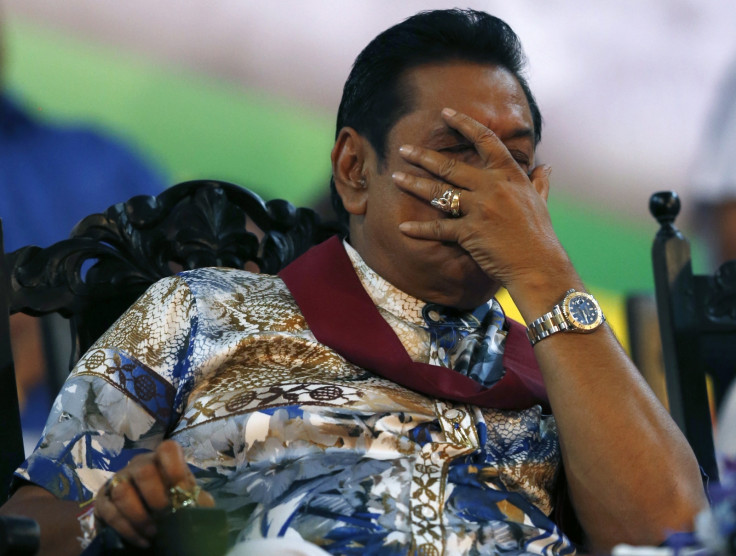Tainted peace: Sri Lankan victims of torture living in UK come forward on eve of country's elections

Sri Lankans head to the polls on 17 August with a legacy of torture haunting the ballot box and voters' relatives in the UK.
A murder probe, allegations of torture and the exhumation of the remains of a former rugby star have all cast a pall over the general election. Now Sri Lankan survivors of torture living in the UK are coming forward with their stories in a new report released Thursday (13 August).
After being unseated in the January 2015 Presidential Elections, former President Mahinda Rajapaksa is running for parliament. But when the body of rugby player Wasim Thajudeen was exhumed early this week Rajapaksa had to contend with government allegations that the player was tortured to death in May 2012 by members of his security team.
With the release of Tainted Peace, 148 Sri Lankans living in the UK are telling their own stories of torture from the end of the country's civil war in May 2009 up to 2013. The report published by NGO Freedom from Torture is based on doctors' forensic reports (medico-legal reports) of the survivors' physical and psychological wounds.
Rajapaksa served as President of Sri Lanka from 19 November 2005 up to the election on 9 January 2015. He was defeated after changing the country's constitution to allow him a third term.
In 2006 Rajapaksa launched a stepped-up military campaign against the rebel Tamil Tiger group, who sought a separate territory from the state of Sri Lanka on the island inhabited by ethnic Tamils and Sinhalese. The UN says 40,000 civilians died in the conflict and the international organisation will issue a human rights report into alleged war crimes in September.
For the Tainted Peace report doctors examined mostly Tamil men and women in the UK who alleged torture while in Sri Lanka — in some cases after they travelled there to visit relatives.
Of the 148 cases all included brutal beatings. Torture methods also included burning, seen in 78% of cases; sexual torture, seen in 71% of cases; and other techniques such as asphyxiation, suspension, and solitary confinement.
"Ninety-three per cent of the survivors reported being targeted for torture because of real or perceived links to the Liberation Tigers of Tamil Eelam including through a family member or acquaintance," the report found. "Torture by the military and police [is] deeply entrenched and has tainted the country's peace since May 2009."
The UK's Foreign Office lists Sri Lanka as a "country of concern" when it comes to human rights. The UK's Home Office has not issued a travel warning to Sri Lanka specific to Tamil UK residents, but it does warn that "electoral periods in Sri Lanka have occasionally turned violent" and advises visitors to "avoid any political gathering or rally".
Freedom from Torture's head doctor, Dr Juliet Cohen, said that based on the cases she saw "the Sri Lankan army and police have formulated methods of torture that are extremely effective at breaking people down."
Calls from IBTimes UK to the Sri Lankan Deputy High Commissioner in London were not returned.
Sonya Sceats, Freedom from Torture's policy and advocacy director, said that whoever forms the new political leadership of the country next week must be "fearless in pursuing accountability for those responsible [for torture] no matter how powerful they are".
Advanced polling by the Centre for Policy Alternatives shows the government of current Sri Lankan Prime Minister Ranil Wickremesinghe slightly out in front.
© Copyright IBTimes 2025. All rights reserved.




















